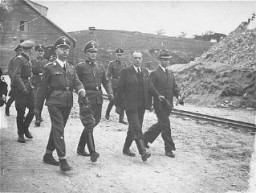You searched for: %ED%8C%8C%EB%A6%AC%20%EC%83%9D%EC%A0%9C%EB%A5%B4%EB%A7%B9%20%EB%A6%AC%EA%B7%B8%20aaa3.top%20%EC%8A%A4%ED%8F%AC%EC%B8%A0%ED%86%A0%ED%86%A0%20%EC%B6%95%EA%B5%AC%20%EB%9F%AC%EC%8B%9C%EC%95%84%20%ED%94%84%EB%A6%AC%EB%AF%B8%EC%96%B4%EB%A6%AC%EA%B7%B8%20%EB%86%8D%EA%B5%AC%ED%86%A0%ED%86%A0%20%EB%B0%B0%EB%8B%B9%EB%A5%A0%20%EB%B3%B4%EA%B8%B0%20%EA%B5%AD%EB%82%B4%EC%82%AC%EC%84%A4%ED%86%A0%ED%86%A0%20Eob
<< Previous | Displaying results 431-440 of 513 for "%ED%8C%8C%EB%A6%AC%20%EC%83%9D%EC%A0%9C%EB%A5%B4%EB%A7%B9%20%EB%A6%AC%EA%B7%B8%20aaa3.top%20%EC%8A%A4%ED%8F%AC%EC%B8%A0%ED%86%A0%ED%86%A0%20%EC%B6%95%EA%B5%AC%20%EB%9F%AC%EC%8B%9C%EC%95%84%20%ED%94%84%EB%A6%AC%EB%AF%B8%EC%96%B4%EB%A6%AC%EA%B7%B8%20%EB%86%8D%EA%B5%AC%ED%86%A0%ED%86%A0%20%EB%B0%B0%EB%8B%B9%EB%A5%A0%20%EB%B3%B4%EA%B8%B0%20%EA%B5%AD%EB%82%B4%EC%82%AC%EC%84%A4%ED%86%A0%ED%86%A0%20Eob" | Next >>
-
The SA
ArticleThe SA (Sturmabteilung) was a paramilitary organization integral to Hitler’s ascension to power. Learn more about the rise and fall of the SA.
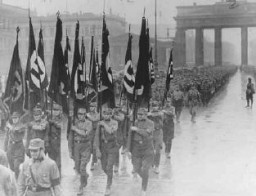
-
Felix Horn describes a hiding place in Warsaw
Oral HistoryFelix was born to an assimilated Jewish family in Lublin, Poland. His father was a locksmith and his mother was a singer. Following the German invasion of Poland on September 1, 1939, Felix fled east to Rovno and then to Soviet-occupied Lvov, where he was accepted at a medical school. After the German invasion of the Soviet Union in June 1941, Felix was taken to a labor camp. He escaped and returned to Lublin, and found that his family had been forced into the ghetto established there. After the…
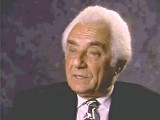
-
Selma (Wijnberg) Engel describes deportation to Sobibor
Oral HistorySelma was the youngest of four children born to Jewish parents. When she was 7, Selma and her family moved to the town of Zwolle where her parents ran a small hotel. When the Germans invaded the Netherlands in 1940, they confiscated the hotel. The family had to live in a poor Jewish section of the town. Selma went into hiding but was betrayed and then sent to the Westerbork camp. In April 1943 she was deported to Sobibor, where she worked in the clothes sorting area. There, the prisoners tried to pocket…

-
Szlamach Radoszynski
ID CardSzlamach was one of six children born to Yiddish-speaking, religious Jewish parents. Szlamach's father was a peddler, and the Radoszynski family lived in a modest apartment in Warsaw's Praga section on the east bank of the Vistula River. After completing his schooling at the age of 16, Szlamach apprenticed to become a furrier. 1933-39: During the 1930s Szlamach owned a fur business. Despite the Depression, he was hoping the economy would turn around so that he could make enough money to move into his own…
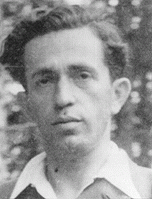
-
Isachar Herszenhorn (Irving Horn)
ID CardIsachar was born to a Jewish family in the Polish city of Radom, approximately 75 miles south of Warsaw. The city was the center of Poland's leather-tanning industry. Isachar's father worked as a salesman for a nearby tanning factory. His father was a successful salesman and the family lived comfortably. 1933-39: During registration for Isachar's first-grade class in 1934, a Jewish boy was pushed down the stairs. When his mother confronted the principal about the incident, all he said was that the boy had…
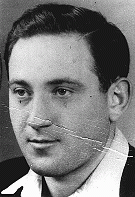
-
Laura Litwak
ID CardLaura was the second of five children born to religious Jewish parents in the industrial city of Lvov. She was often called affectionately by her nickname, Lorka. Coming from an educated family living in a multi-ethnic part of Poland, she grew up speaking Polish, Russian, German and Yiddish. As a young woman, she earned a humanities degree from St. Nicholas University in Lvov. 1933-39: In April 1935 Laura became Mrs. Daniel Schwarzwald. Her husband was a successful lumber exporter, and they lived in a…
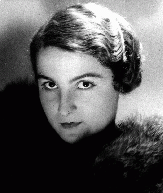
-
War Refugee Board: Background and Establishment
ArticleIn January 1944, FDR established the War Refugee Board which was charged with “immediate rescue and relief of the Jews of Europe and other victims of enemy persecution.”
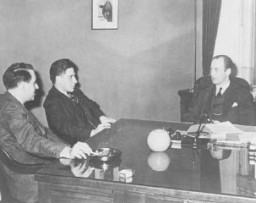
-
Alexander Schenker describes working as a lumberjack in a labor camp in Siberia
Oral HistoryFollowing the German invasion of Poland in September 1939, Alexander and his family fled eastward to Lvov. His father then fled to Vilna, hoping to obtain visas for the family to escape through Japan. The rest of the family was caught while trying to cross border into Lithuania in order to meet up with Alexander's father. They returned to Lvov. Alexander and his mother were later arrested for refusing to declare Soviet citizenship. They were sent to a labor camp in the Soviet interior. After their release…

-
Immediate American Responses to the Nazi Book Burnings
ArticleThe Nazi book burnings of 1933 sparked responses from anti-Fascist organizations, Jewish groups, and writers in the United States. Learn more.
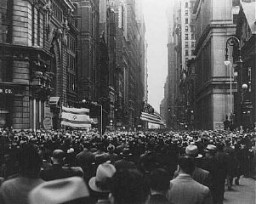
-
SS and the Camp System
ArticleIn 1933-1934, the SS seized control of the Nazi camp system. Learn more about the persecution, forced labor, and murder that occurred under SS camp rule.
